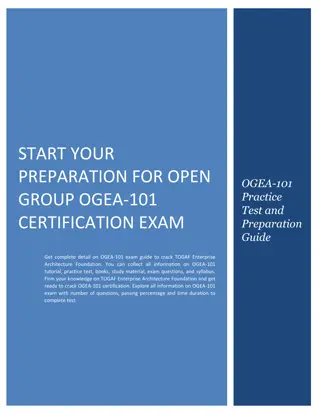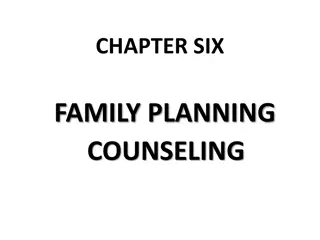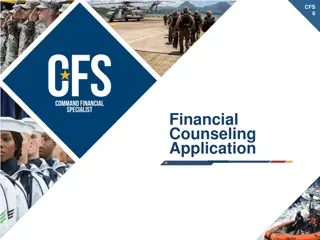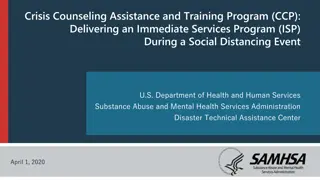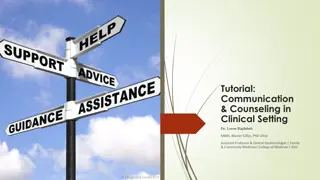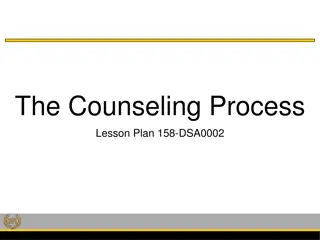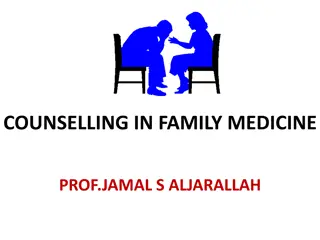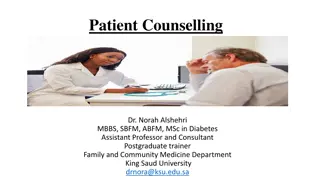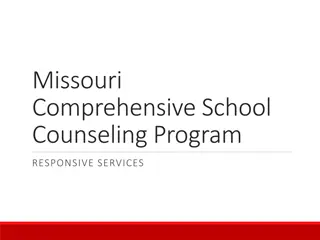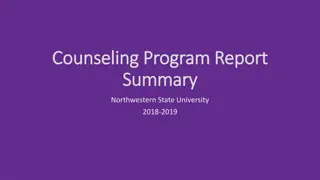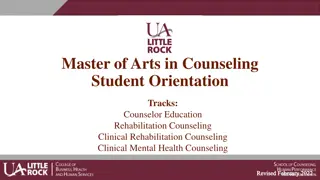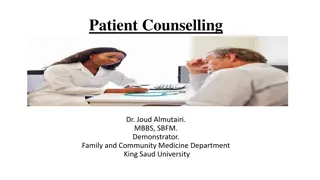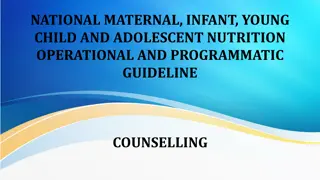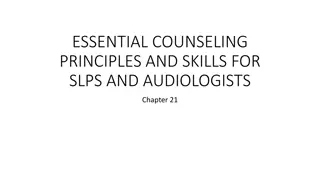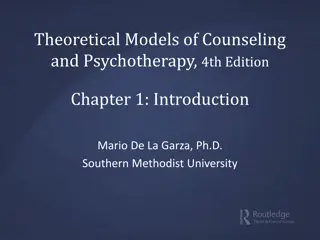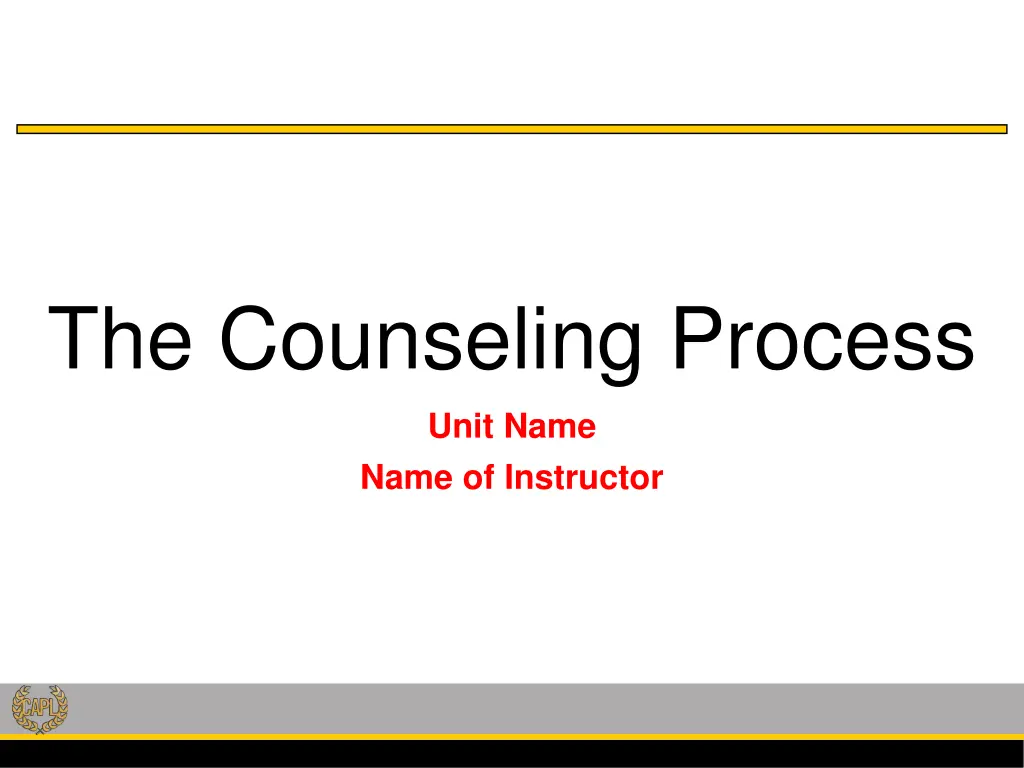
Understanding the Counseling Process in Leadership Roles
Explore the importance of effective counseling experiences, stages, approaches, and forms in leadership development. Discover how counseling impacts the mentor-subordinate relationship and enhances overall performance.
Download Presentation

Please find below an Image/Link to download the presentation.
The content on the website is provided AS IS for your information and personal use only. It may not be sold, licensed, or shared on other websites without obtaining consent from the author. If you encounter any issues during the download, it is possible that the publisher has removed the file from their server.
You are allowed to download the files provided on this website for personal or commercial use, subject to the condition that they are used lawfully. All files are the property of their respective owners.
The content on the website is provided AS IS for your information and personal use only. It may not be sold, licensed, or shared on other websites without obtaining consent from the author.
E N D
Presentation Transcript
The Counseling Process Unit Name Name of Instructor
Experiences with Counseling What has been your best counseling experience? What has been your worst counseling experience? How do these experiences affect your ability to counsel junior Soldiers who really need it? How could consistent counseling benefit the leader & the subordinate?
Terminal Learning Objective (TLO) #1 Action: Conduct the counseling process. Conditions: As a leader, given experiential learning activities and access to references ADP 6-22, ATP 6-22.1, and AR 600-23, discussion with peers and instructor feedback. Standard: Be able to apply all four stages of the counseling process in the correct sequence. Identify the three approaches to counseling. Complete all four parts of DA Form 4856 Developmental Counseling Form. Learning Domain: Cognitive Level of Learning: Application
What is a counseling? Counseling is nothing more than a conversation that has an outline and clear objective(s) Is it more effective to simply tell someone what to do or to work with the person to develop a mutually agreed upon action plan?
Four Stages of Counseling Stage 1 Reason Stage 2 Prepare Stage 3 Conduct Stage 4 Follow-up Provide Support Coach Mentor Modify Assess *General *Professional Growth *Performance *Event Oriented Suitable place Notify Soldier Outline Organize Plan strategy atmosphere Open session Discuss issues Develop a plan Document Close session
Directive, Nondirective, and Combined Approaches Counseling techniques that leaders may explore with directive, nondirective or combined approaches include: Suggesting alternatives Recommending Persuading Advising Techniques to use during the directive approach include: Corrective training Commanding
Parts of DA Form 4856 Part I Administrative Data Part II Background Information Part III Summary of the Counseling & Plan of Action Part IV Assessment of Plan of Action
Parts of DA Form 4856 Part I Administrative Data
Parts of DA Form 4856 Part II Background Information "New" form as of March 2023 Clear for the "Purpose of the counseling"
Challenges? What are some reasons that a counselor may find this activity awkward, uncomfortable or challenging? What can you as the counsellor do to mitigate these concerns?
Part III Summary of the Counseling Outline of the counseling session This is where you plan out your conversation Address the facts Establish indisputable results/data the basis for the counseling Locate the why Make it productive for both people
Part III Plan of Action Find motivation Internal VS External motivators Reach for maximum effectiveness Every Soldier reacts differently to criticism
Part IV Assessment of Plan of Action Schedule/outline the assessment in Part III Express praise/concerns Quantify results as much as possible Provide clear guidance to sustain or improve outcomes
Tips and Tricks 1. Do not recreate the wheel Find resources online - www.armywriter.com/ncoer.htm Ask a leader or people who have been in your position 2. Timeliness matters Routines create habits that lead to building relationships Recent actions/behaviors should be the focus 3. Soldier care is top priority Bring in a third non-bias Soldier Transparency goes a long way


